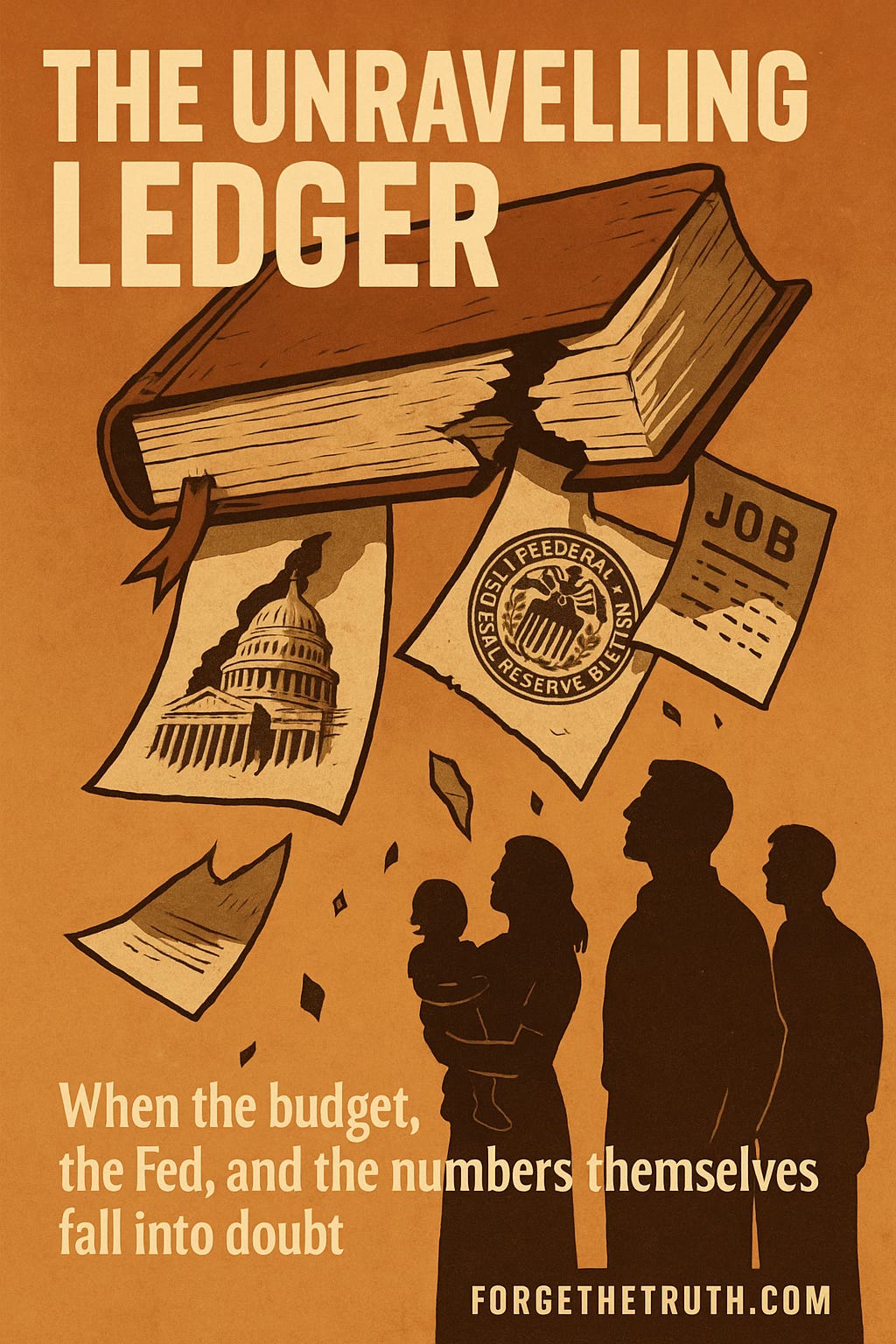The Unraveling Ledger
When the budget, the Fed, and the numbers themselves fall into doubt
Dateline: Washington, D.C., September 1, 2025
The American experiment has always depended on its ledger. Not just the federal budget, but the trust that the numbers mean something. That the institutions keeping them, Congress, the Federal Reserve, and the Bureau of Labor Statistics, operate above partisanship. That when the ledger says this is the truth, we believe it.
This week, the stitching that holds that ledger together is starting to tear.
A Shutdown at the Door
Congress returned from recess with less than a month to keep the government running. Instead of consensus, the House faces gridlock over foreign aid, border security, and the shape of federal spending. September 30 looms as the deadline for funding. Workers who keep planes flying, food inspected, and veterans cared for are once again pawns in a power game (AP News).
Trump vs. the Fed
President Trump attempted to fire Federal Reserve Governor Lisa Cook, who has refused to step down and has filed a lawsuit to defend her position (Financial Times). For decades, the independence of the Fed has been treated as a sacred principle. Without it, monetary policy becomes a political weapon.
As one former Fed official told the FT: “If the central bank becomes just another arm of the White House, the credibility of the dollar itself is at risk.”
This lawsuit is not just about one economist’s job. It is about whether the White House can bend the most important economic institution in the country to its will.
Doubt in the Numbers
Meanwhile, the Bureau of Labor Statistics, long regarded as one of the most professional, apolitical agencies in government, is under attack. Allies of the President claim jobs data is manipulated, just days before the next major report. This data guides businesses, investors, and workers alike. If the numbers themselves lose credibility, then so does every paycheck, every investment, and every plan tied to them (AP News).
Why This Matters
The ledger is more than paper and ink. It is the fragile balance of trust that makes democracy and markets function. If people cannot believe the numbers, they cannot believe the promises. And when the ledger unravels, ordinary citizens, not the powerful, pay the price.
Every mortgage, every wage, every retirement account depends on institutions that are bigger than any one politician. If they fall, the collapse is not abstract. It is lived, daily, in homes and households across the nation.
What Comes Next
The American people face a choice: let cynicism and partisanship tear the ledger apart, or demand that truth in governance still matters. The guardrails are not gone yet. But they are groaning under strain.
The fight now is to hold fast to the idea that institutions serve the public, not the politician. To insist that the ledger remains intact, not for the sake of economists or bureaucrats, but for the millions whose lives depend on its numbers.
The ledger of democracy is unraveling. Whether it can be rewoven depends on us.

